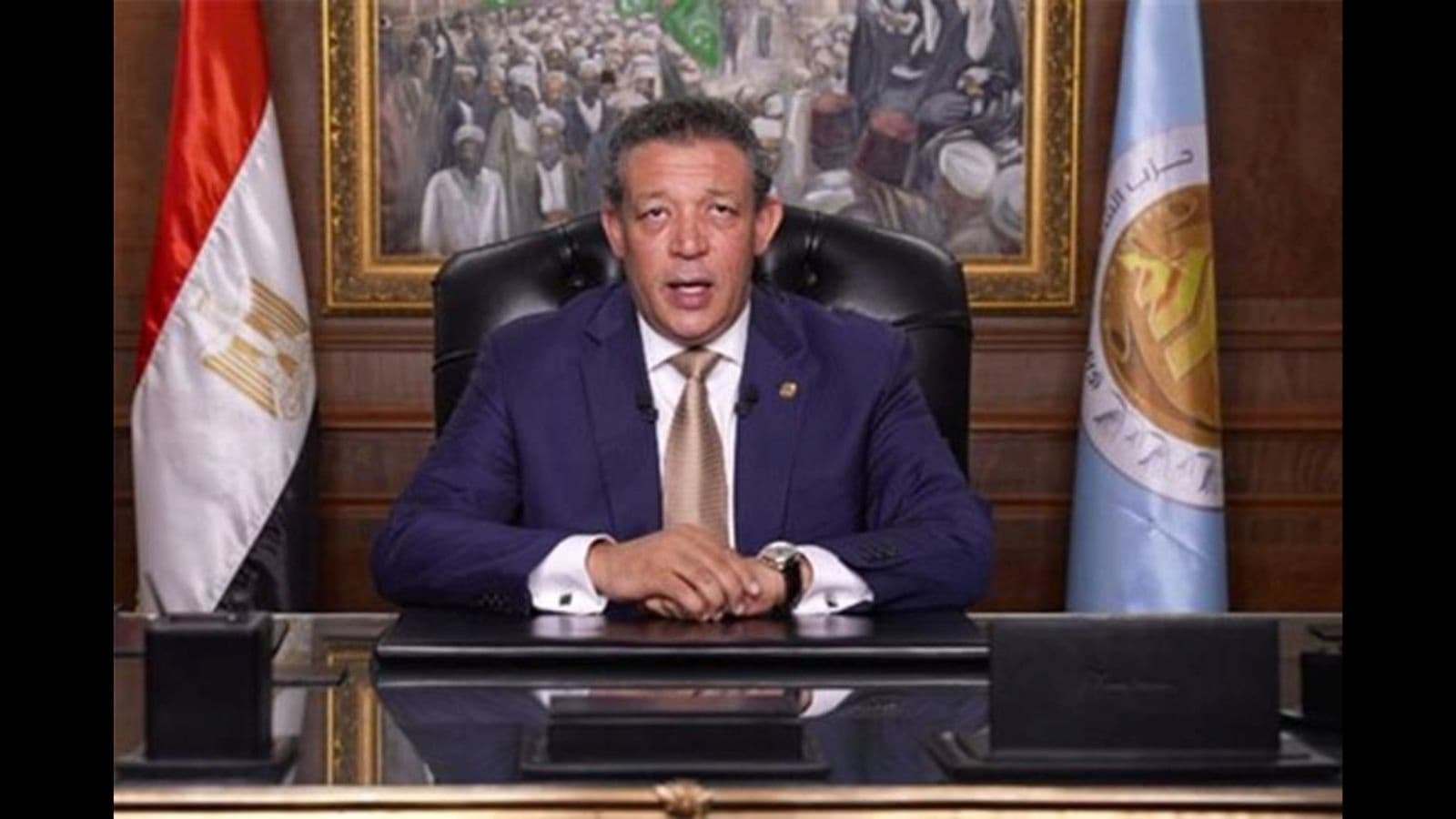Who is Hazem Omar: Hazem Omar, a likely candidate for the 2024 Egyptian presidential election, has garnered significant traction by securing 44 nomination forms from the House of Representatives. MP Mohamed Salah Abu Hemila, chairman of the Republican People’s Parliamentary Committee, made the announcement, casting light on the party leader’s rising popularity.
Many Egyptians are curious about Hazem Omar, the leader of the Republican People’s Party and prospective presidential candidate, in light of the upcoming presidential election.
Who is Hazem Omar?
Hazem Omar presides over the Republican People’s Party as its leader.
Prior to his recent resignation, Omar was the chairman of the Senate Foreign Relations Committee. Senate Nomination:
In December of 2020, he was appointed to the Senate.
Omar is also well-known in the business community as the Chairman and Managing Director of the tourism development company Fial Mora.
As a result of his announcement on Thursday morning that he will resign from the Senate to compete for the presidency of Egypt in 2024, Omar’s name dominated popular search engine Google in a recent, unexpected development.
In his resignation letter to the Senate, Omar explained: “In reference to the National Electoral Commission’s decision number (5) of 2023 regarding the opening of nominations for the presidency of the Arab Republic of Egypt 2024, and following the decision of the Supreme Body of the Republican People’s Party issued on July 8, 2023 endorsing my candidacy for the presidency for the term 2024-2030, I have decided to submit my candidacy papers for the presidency.”
He continued, “Therefore, in accordance with Article (255) of the Senate’s internal regulations issued by Law No. (2) of 2021, I hereby tender my resignation from the Senate without any conditions.” Omar concluded his letter with the following request: “Kindly review and take the necessary legal procedures to present the resignation at the first general session, enabling us to complete our nomination procedures for the 2024 presidential elections.”
The political landscape of Egypt has been dynamic over time, with numerous leaders emerging. The Senate, a crucial institution in the Egyptian political system, functions as a platform for numerous influential political figures. Both domestically and internationally, the 2024 elections are being intently monitored for indications of Egypt’s future direction. The significance of these elections is highlighted by Hazem Omar’s decision to resign from a pivotal Senate position and run for president.
Walid Hamza, the head of the Egyptian National Election Authority (NEA), announced at a press conference on Monday that domestic voting for the 2024 Presidential Elections will take place on December 10, 11, and 12, 2023, while overseas voting will take place on December 1, 2, and 3, 2023.
“The presidential elections will be conducted under full judicial supervision, and each judge will be assigned an electoral box,” said Hamza, adding that the nomination period for those who wish to run for the six-year presidency will be from October 5 to 14 from 9:00 a.m. to 5:00 p.m., except on the last day (October 14), when applications will be accepted until 2:00 p.m.
Youm reported that there will be 10,085 polling locations nationwide for the presidential election.
In the following paragraphs, ET publishes Egypt’s Presidential Election Schedule for 2024:
Who Is Pamela Brown Husband: Her Biography and Career History
25 September 2023
Inviting eligible Egyptian electors to participate in the presidential elections.
5-14 October 2023
Candidates for the presidency must submit their nominations during this 10-day period.
16 October 2023
The NEA will publish the initial list of candidates and the number of their supporters in the state-owned Al-Akhbar and Al-Gomhuria newspapers.
17-18 October of 2023
On these two days, complaints lodged by candidates will be accepted from 9:00 a.m. to 5:00 p.m.
2023 October 19-21
The National Election Authority (NEA) is responsible for investigating and resolving candidate complaints.
22 October 2023
The NEA shall inform candidates of their exclusion from candidacy and the reasons for this exclusion.
October 23 and 24 of 2023
Excluded candidates may appeal the exclusion decision between 9 a.m. and 5 p.m.
26 October 2023:
Choosing candidates based on their appeals
October 27-28, 2023
Referring the appeals of the candidates to the High Administrative Court.
29 October to 7 November 2023
Candidates’ appeals will be decided by the High Administrative Court. The decision must be published in Al-Waqa’i’ al-Misriyya, Al-Akhbar, and Al-Gomhuria.
8 November 2023
The deadline for presidential candidates to withdraw from the contest and select their electoral symbols.
9 November 2023
The ultimate candidates’ names and their electoral symbols will be made public.
9 November 2023
Campaigning for the election begins for all candidates.
15 November 2023
The deadline for candidates to withdraw their nomination for another opponent. Within two days of renouncing candidacy, the waivers must be published in the official gazette as well as the Al-Akhbar and Al-Gomhuria newspapers.
29 November 2023
The end of election campaigns and the beginning of electoral silence for voters residing abroad occurs at midnight on November 29.
December 1, 2, and 3 2023
Eligible Egyptian voters residing abroad shall cast their ballots in the election from 9:00 a.m. to 9:00 p.m. according to the local time of each country.
8 December 2023
At midnight, domestic election campaigns conclude, and electoral silence begins.
December 10, November 11, and December 12 of 2023
Voting begins at 9:00 a.m. and ends at 9:00 p.m. on each of these three days.
13 December 2023
The procedure of sorting will take place.
14 December 2023
The National Election Authority will accept challenges to the results of the sifting procedure.
15-16 December, 2023
Determining appeals against the results of the sorting procedure
18 December 2023
The number of voters and the results of the first round of elections will be proclaimed and then published in the official gazette.
19 December 2023
Campaigning will resume for candidates in the run-off election.
December 19 and December 20, 2023
Candidates for the run-off who file formal complaints
January 21-30, 2023
In the rematch, the High Administrative Court will rule on the complaints submitted to it.
4 January 2024
The conclusion of election campaigning and the beginning of electoral silence for expat voters.
January 5, 6, and 7
The voting hours for eligible expat electors are from 9:00 a.m. to 9:00 p.m. local time in their respective countries.
7 January 2024
Election campaigning concludes, and domestic election silence commences.
January 8, 9, and 10
Domestic voting will begin between 9:00 a.m. and 9:00 p.m.
11 January 2024
The process of sifting will occur, and the voter turnout will be announced.
12 January 2024
The National Election Authority will accept appeals against the results of the runoff sorting procedure.
December 13-14
Following the sorting procedure, deciding the appeals against the runoff results.
16 January 2024
The National Election Authority will officially declare the final election results.
The Constitution prohibits a president from running for a third term. In 2019, however, constitutional amendments extended the presidential term from four to six years.
Consequently, incumbent President Sisi, who has been in office since 2014, is eligible to seek for a third term until 2030.
Sisi has not yet announced intentions to run for office. However, tens of political parties and unions, including the parliamentary majority party Mostaqbal Watan, have announced their support for his potential candidacy.



